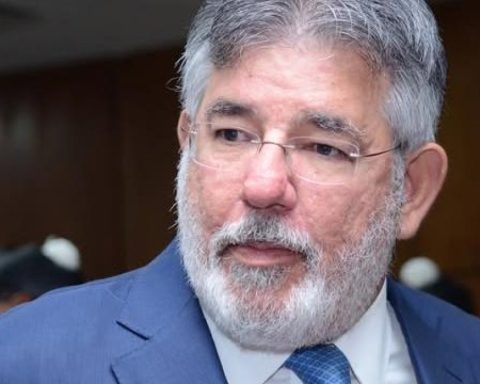In 2019, the General Budget of the Nation was $259.3 billion, of which $160.5 billion was allocated to operating expenses, that is, those monies that ensure that the State can function, both at the regional as well as from the central government, either to guarantee the presence of their forces or social attention.
In 2024, five years later, the total budget is $503.7 billion and the operating budget exceeds $308.9 billion. Although operating expenses remain at 61% of total accounts, this reality shows a negative side. different when it is left on the table that this year they are almost double what they were five years ago.
More news: The macroeconomic priorities that Colombia must have by 2025, according to Anif
Between 2022 and 2024 alone, they went from $211.2 billion to the almost $310 already mentioned, marking a specific growth of $97.7 billion. Meanwhile, for 2025, the original intentions of the Ministry of Finance, before the financing law fell, were $327.9 billion, which if maintained, would leave less room for other fronts such as investment.
Payment of subsidies
An analysis of the Fiscal Observatory of the Javeriana Universitypublished a few months ago, focused its attention on how the State is spending money and found that, in the case of operating expenses, most of the increases that have been made are due to the commitment that is made to the current transfers.
General Budget of the Nation.
Reviewing only the money that must be used to guarantee that the Government functions, the report shows that between 2019 and 2022, this type of spending grew approximately $87.5 billion in constant pesos, representing an increase of 40% at a general level and 5.5% of GDP projected for 2024.
This growth was mainly concentrated in the Current Transfers account (82%), followed by personnel expenses (14%) and to a lesser extent the rest of the accounts (4%). In this way, they noted that 8 out of every 10 pesos in the costs of operation, subsidies and aid from the State will be paid, which sometimes involve duplicity.
“Current transfers are resources that are allocated to other entities in the public or private sector that are made regularly in compliance with the Constitution and the Law and do not imply a direct consideration of goods and services in favor of the State. For their part, Personnel Expenses are used to pay salaries and remunerations of public employees, as well as social benefits, social security contributions, compensation and other benefits,” they explained.
In the disaggregation of transfers, those that have weighed the most during The last five years are the Fuel Price Stabilization Fund (Fpec), with 26%, followed by the General Participation System (subsidies in the regions), which covers 19%, and in third place the transfers to the system health, with another 19%.
Read here: 4×1,000: why could the banks not implement the adjustments to this tax?
This list also includes the social benefits assumed by the State (health and pensions), for which $13.2 trillion had to be allocated between 2019 and 2024, that is, 18% of the increase in expenses. Finally, there are “other current transfers”, which are laws that order some transfer for subnational governments, funds or private entities that manage public resources to finance social spending and account for 17% of the growth of the operating category.
How to trim?
Adding to the debate that today attracts the attention of economists, regarding how to start spending less, the Observatory put on the table new alternatives that can help, starting by giving greater autonomy to the regions and put an end to the duplication of functions between the State and the territorial entities.

National budget debate
“It is necessary that territorial entities have a greater degree of autonomy to direct resources to expand their institutional capacities to generate their own income through territorial taxes and thus reduce pressure on national finances. Additionally, in terms of health, education and basic sanitation,” they indicated.
On the other hand, they point out that health care and pension subsidies They must be reviewed, in order to study their relevance and end benefits to people who do not need them, as well as treatments that do not require financing with State money that could be used for other things.
“As for the social benefits assumed by the State, these obligations will continue to generate pressure on finances because in most cases there are acquired rights involved, as in the case of pensions for the military and police forces.” or require structural reforms for their adjustment that must be processed in the Congress of the Republic, such as the special health regime for teachers,” they explained.
More information: Economy will grow more, but will encounter obstacles
The Observatory researchers also indicated that it is necessary to rethink and narrow the definition of ‘social spending’, arguing that there is increasing pressure coming from projects and laws that are created, forgetting that the Budget is governed by the principle of “cash unit.”
“This means that all the Nation’s income enters a single common pool and finances all expenses. However, it is possible to tie an income to a specific expense as long as it is considered social public expense. Public social spending in Colombia has priority over any other type of spending,” they noted.
In this sense, they maintained that since the definition of this term It is so broad that it has allowed the proliferation of laws that mandate temporary or permanent spending with the qualifier “social”, without any consideration of its long-term sustainability.

Recession
The analysis closes by warning that the rationalization of bonuses, bonuses and other payments other than the basic monthly allowance is crucial to optimize personnel expenses in the public sector, since they are a significant burden on the State’s finances without necessarily translating into greater efficiency. or productivity.
Likewise, they invited the launch of the Budget Technical Assistance Office (OATP) to support the legislature with technical analysis and the implementation of a budgeting model by programs and results, which aims to improve the efficiency of public spending through incentives aimed at the goal achievement, robust evaluation systems and budget decisions based on reliable data.

















